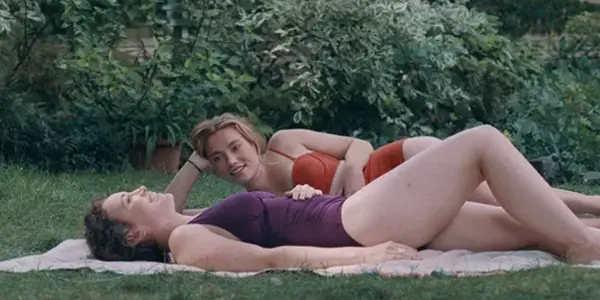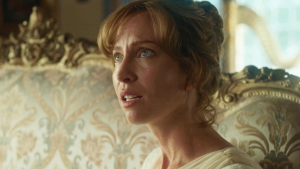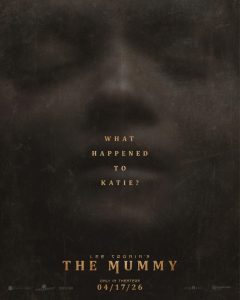
LGBTQ+ people are a demographic whose presence in media is thankfully becoming more prevalent by the day. From indie darlings like Moonlight and Carol (2015) to mainstream hits like Love, Simon (2018), its spinoff series Love, Victor (2020-2022), or the clever and diverse series Sex Education (2019-2023), it’s clear that the community is getting the attention they deserve. However, not every project gets that kind of traction, and Stephen Cone‘s Princess Cyd (2017) is one such overlooked treat. Despite mostly positive reviews from the press and a successful festival run six years ago, hardly anyone talks about it or knows about its existence. It’s time to change that.
What’s the Gist?
The premise centers around a Chicago teen named Cyd (Jessie Pinnick, stupendous), whose depressive father sends her to her aunt Miranda’s (Rebecca Spence) for two weeks. Miranda, a rather spiritual woman who writes similarly faith-based novels, initially struggles to connect with her niece. However, as the two get to know each other, they both learn meaningful lessons about life, as well as what it means to be fulfilled.
source: Wolfe Releasing
At the same time, Cyd develops a fling with a local barista named Katie (Malic White), despite never having feelings for the same sex, and this unexpected occurrence ends up bolstering both the depth of her understanding of Miranda, as well as the strength of the pair’s bond.
What Should You Watch It?
The real question is, why shouldn’t you watch this delightful little film? But seriously, the filmmaking is so understated and observatory that you can very easily just relax and let the experience wash over you. Zoe White‘s cinematography simply watches Cyd, her aunt, and their community interact. It doesn’t insist upon itself, which is the correct approach in a story so simplistic. On top of that, Stephen Cone‘s dialogue has such a knack for everyday speech that, even when characters occasionally monologue to each other, it doesn’t seem hammy or forced. That Cone also grew up gay in a southern baptist background makes his approach to writing both religious and LGBTQ+ people feel that much more real here, because it comes from a real place. It honestly makes him one of the most exciting voices in independent cinema for me.
source: Wolfe Releasing
In addition, the performances feel just as down-to-earth. No one feels like they’re trying to win an Oscar or Golden Globe. When Cyd admits her feelings about Katie to Miranda, you can sense her hesitance to take that leap- something I can definitely relate to, being bisexual myself. Gratefully for her, Cone avoids an easy excuse for crafting drama, and has Miranda react rather nonchalantly and positively to the news. Religious people aren’t always bigoted or unaccepting, but such nuance is not usually depicted in fiction, be it TV, music, books or movies. This makes yet another reason why nobody but Stephen Cone could’ve made this movie.
Rebecca Spence steals the show, though, as Miranda. Though Cyd is the titular main character, Miranda functions as both a fully-realized character on her own, and as the fulcrum of Cyd’s enlightenment. Spence balances both perfectly, confidently crafting a portrait that feels like someone you might have even known in real life. She knows who she is, what she’s all about, and is totally at peace with that. This becomes evident in her body language, as well as her delivery, particularly during a masterful monologue that provides the film’s highlight.
source: Wolfe Releasing
Why Am I Recommending It?
But I wouldn’t recommend Princess Cyd if it merely good. When I was seventeen or eighteen and saw this for the first time on Netflix, I was very much in the closet about my own sexuality. Being bi was a constant source of stress and anxiety for me. Once I saw this picture, I started to finally feel like it might not be such a big deal after all, and that it was possible for me to get to a place where it was just another part of me, much like how was viewed regarding the character of Cyd. Now, at twenty-three, I’m finally at that place, and I have this film to thank for being the catalyst towards that endgame.
Closing Thoughts
If you love great LGBTQ+ cinema, you definitely shouldn’t miss this. If you’re bi, especially, this is a great bit of representation for possibly the least represented demographic in the community. It is superbly shot, written and acted, with a relaxing slice-of-life approach to its story that makes it a delight every time. Just curl up in a warm blanket and let it wash over you. You can thank me later.
Does content like this matter to you?
Become a Member and support film journalism. Unlock access to all of Film Inquiry`s great articles. Join a community of like-minded readers who are passionate about cinema – get access to our private members Network, give back to independent filmmakers, and more.











